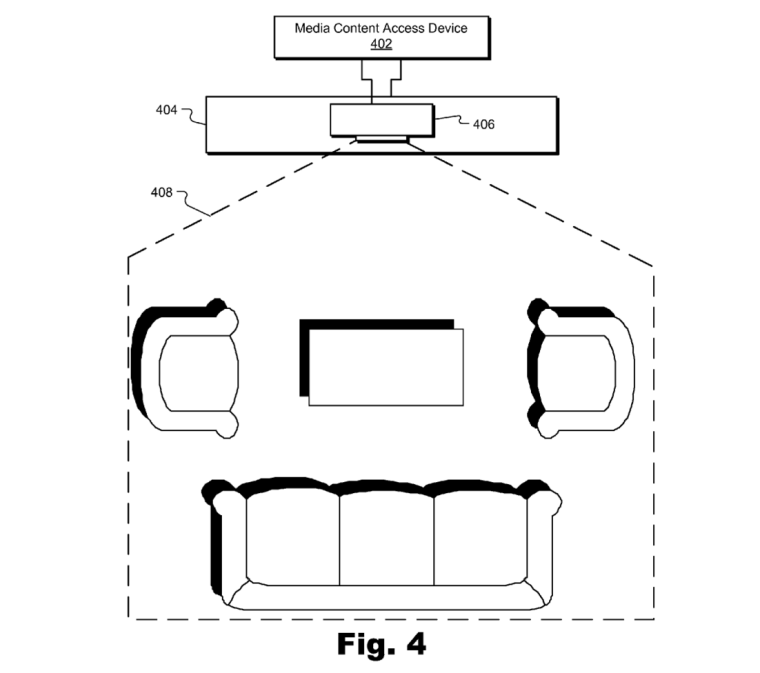
A patent application from Verizon describes a DVR that would watch the living room for "ambient actions" like people singing, fighting, or even cuddling. It would then choose "appropriate" advertisement to show based on its analysis. It isn't the first attempt at this kind of thing, but it might be the creepiest.
The patent, filed May 26, 2011, is entitled "Methods and Systems for Presenting an Advertisement Associated with an Ambient Action of a User." The idea is simple enough: using a built-in camera, the DVR would check that state of the people watching, and make changes to advertising based on that.
It's only one of many TVs now that can watch you back; The camera-equipped Kinect has been a hugely popular accessory for the Xbox 360, and many TVs come with high-definition webcams built-in for video chatting and other purposes. Comcast, Google, Microsoft, and others have all tested the waters regarding user monitoring. After all, a TV that locks out certain programming for kids or resumes a show where you left off as soon as you sit down is as useful as it is creepy.
But in Verizon's idea, the creepiness outweighs the useful by a good margin. It's solely directed at selecting advertising, and has nothing to do with improving the user experience or adding functionality.
Not only that, but the actions it looks for seem odd. It would be understandable, if still a little weird, to send ads targeted to couples if it detected there were two people sitting close together. But Verizon's system goes one step further and detects whether those two might be "cuddling," and then specifically suggests "a commercial for a contraceptive" as a likely one to run.
Few people would submit to such scrutiny anyway, even if they were assured that the information was confidential. And while basing ads on things like reading or cooking wouldn't be as creepy, the other actions described don't even make sense. Playing an instrument, participating in a sport, fighting — these are things people do when they aren't paying attention to the screen.
It's also worth noting that Verizon's idea chooses ads for the "commercial break" — the very thing people are trying to get away from when they buy a DVR.
The applications of situation-aware devices are many and various, but consumers will be certain to reject a device that not only invades their privacy, but does so without compensating them with useful features.
NBC News has reached out to Verizon for comment, and will update this story should we hear back.
Update: Verizon has issued a statement regarding the patent:
"Verizon has a well-established track record of respecting its customers’ privacy and protecting their personal information. As a company that prizes innovation, Verizon takes pride in its innovators whose work is represented in our patents and patent applications. While we do not comment on pending patent applications, such futuristic patent filings by innovators are routine."
Devin Coldewey is a contributing writer for NBC News Digital. His personal website is coldewey.cc.